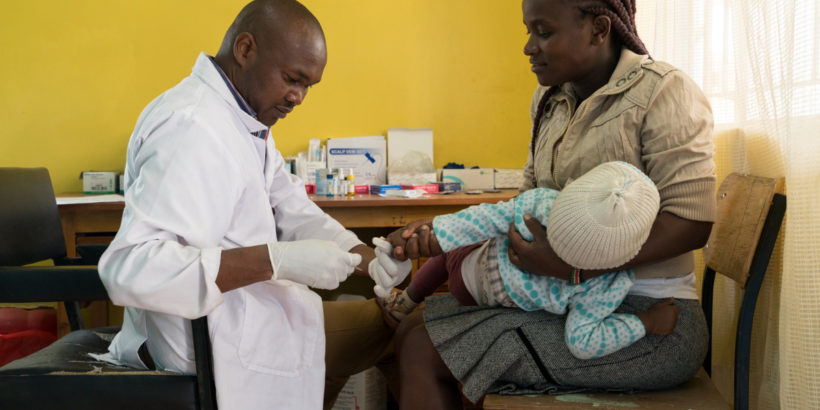Over a lifetime of work on enteric diseases (affecting the intestines), I have seen the real impact that policy changes can have on the neighbourhoods and communities where I work. Decisions made in Geneva are felt right here in Kenya, and around the world wherever the burden of diseases like typhoid is high.
That is why I am so pleased that this week, the World Health Organization (WHO) took the exceptional step of recommending the introduction of typhoid conjugate vaccines (TCVs) in typhoid-endemic countries and in response to outbreaks. This decision follows the recommendation made by the WHO’s Strategic Advisory Committee of Experts (SAGE), as well as the prequalification of the first typhoid conjugate vaccine, a critical step in expanding access to this lifesaving vaccine that serves as an endorsement of quality, efficacy, and safety for countries interested in adopting the vaccine. This announcement also comes as Gavi, the Vaccine Alliance, has pledged US$85 million to help the world’s poorest countries introduce typhoid conjugate vaccines.
Every year, nearly 12 million cases of typhoid occur, the majority of which are in children under the age of 15. The new WHO recommendation could begin to change this. Many cases occur in the community where I work. Typhoid is preventable, but still I see sick children missing valuable school days, parents missing work to care for a sick child, and families going into debt seeking treatment. From my years as an epidemiologist and a researcher, I can attest to the devastation caused by typhoid in communities where the disease is endemic. The WHO recommendation is a giant step to ensuring children have access to the new typhoid vaccines, but the recommendation can’t do it alone. We need the combined efforts of many program managers, researchers, scientists, paediatricians and health care workers to build support for vaccine introduction and accomplish the right combination of policy change and progress on the ground.
To take on typhoid, we need better water, sanitation and hygiene systems. We need better diagnostics. We need appropriate antibiotics. Most of all, however, we need to work together. Today, we have a powerful new vaccine, but it takes many different actors joining forces to put it into work, from the WHO making policy recommendations, to Gavi committing to funding, to countries and organisations in endemic areas and even to the individual families and parents that make the decision to have their child vaccinated.
Despite the years of hard work left to go, I truly believe that the power of vaccines to help reduce the burden of childhood diseases like typhoid will be realised. This latest WHO recommendation will be a game-changer in typhoid-endemic areas. Now that we’re beginning to go down the path of typhoid vaccination, I look forward to seeing many healthy, safe and vaccinated children in Kenya and around the world.
Help share the news of the new WHO recommendation with our social media toolkit!
Photo: Sabin Vaccine Institute | Adriane O’Hanesian



